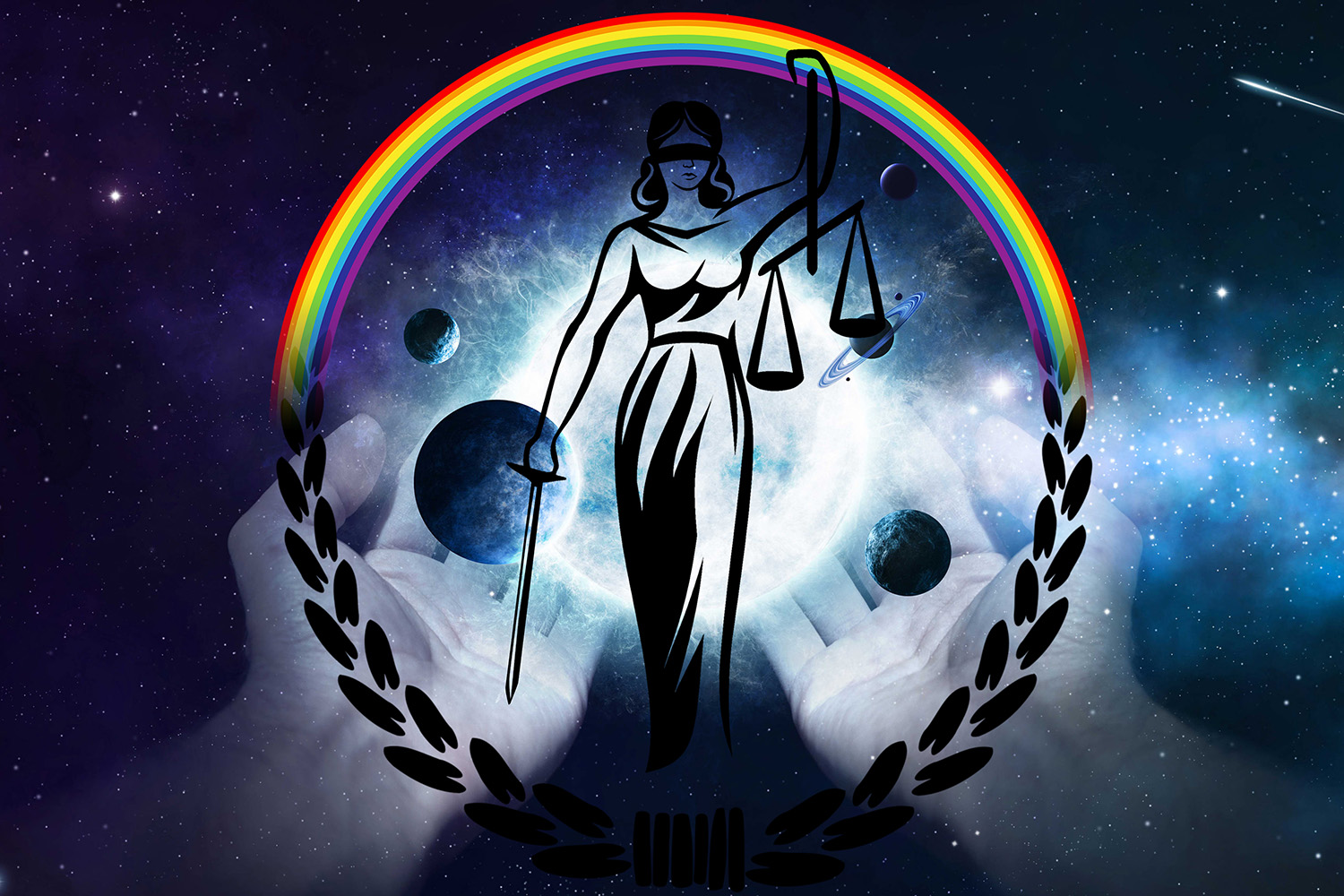When you look up the word “law” in a dictionary, you’ll typically find more than 20 different definitions, but they do break down into two main categories: 1) made-up rules that require enforcement (e.g., tax laws), and 2) principles or protocols upon which reality is constructed to operate (e.g., laws of physics).
God as Creator built space, time, matter, energy, and life. His laws are the constants — the protocols, the principles — upon which the universe and life is constructed to operate. These cannot be changed and life, as we know it, still exist. So Jesus said:
Remember that as long as heaven and earth last, not the least point nor the smallest detail of the Law will be done away with — not until the end of all things (Matthew 5:18 GNB).
In her book, Finding Truth, Nancy Pearcey describes this reality:
The origin of the universe has given rise to a puzzle known as the fine-tuning problem. The fundamental physical constants of the universe are exquisitely balanced, as though on a knife’s edge, to sustain life. Things like the force of gravity, the strong nuclear force, the weak nuclear force, the electromagnetic force, the ratio of the mass of the proton and the electron, and many other factors have just the right value needed to make life possible. If any of these critical numbers were changed even slightly, the universe could not sustain any form of life. For example, if the strength of gravity were smaller or larger than its current value by only one part in 10 60 (1 followed by 60 zeroes), the universe would be uninhabitable.[1]
Human beings did not and cannot create reality as God did; instead, when we make up rules, we must enforce those rules externally, most often through the infliction of punishment. Sadly, after Constantine “converted,” the idea that God’s law functions in the same way that human laws do was embraced; the idea that God’s law is imposed (imperial) began to infect Christianity — corrupting the saving truths that Jesus brought. The message of God for today is that the hour in human history has come for people to make a right judgment of who God is; we are to “worship him who made the heavens, the earth, the sea and the springs of water” (Revelation 14:7 NIV84). That is Creator worship.
What Are God’s Design Laws?
I have had many requests for a list of the various design laws of God. Below, you will find a compilation of many of these laws. This is not a complete list; God is infinite, and there are certain to be many more design laws that I have not yet comprehended or perhaps humans have not even discovered.
In order for a law to be a design law, it must be a principle or protocol upon which reality operates. As such it will be testable — with reproducible, consistent, constant, and predictable results. In other words, it is non-changing. The only variables would be in the damage that results with various degrees of violating a law. For instance, jump off a 500-foot building and you die; step off a 5-inch curb and you twist an ankle — the law of gravity doesn’t change, but the degree of the violation causes a different degree of injury (note that these laws have a natural consequence; they do not require an external agent to punish someone who violates these laws).
So, God’s law in short summary:
- The law of love: the principle of giving upon which life is built to operate; examples:
- We give CO2 to the plants, and they give oxygen to us
- The water cycle (oceans > clouds > rain > rivers > oceans)
- Plants give pollen to bees and bees their industry to pollinate the plants
- The law of liberty: Love only exists in the atmosphere of freedom. Violate freedoms in relationships and three predictable and damaging consequences will occur:
- Love is damaged and eventually destroyed
- Rebellion (desire to break away and get free) is incited
- Individuality of the one dominated will be eroded and eventually destroyed if the violations do not end
- The law of worship: We are changed neurobiologically and characterologically to become like what we admire, worship, and spend time watching and assimilating.
- The law of exertion: Strength comes from exercise — “use it or lose it” — not just physically, but also neurologically.
- The laws of physics: law of gravity, friction, motion, nuclear forces, etc.
- The laws of mathematics: such as commutative laws, a + b = b + a, etc.
- The laws of health: the physical laws upon which life and health operate, including nutrition, exercise, sleep, hydration, respiration, etc.
- The law of restoration: After expending a resource, one must rest and recover before one is enabled to expend more. For example, a baseball pitcher must rest and recover before he can pitch again, lest he cause permanent damage to his arm.
- The law of sowing and reaping: We reap what we sow — not just in fields, but in life. One cannot get grapes by sowing oats, and we cannot get critical reasoning skills by allowing others to think for us. For example, simply getting the correct answers from a textbook or teacher, rather than figuring out those answers ourselves. This is why the Bible says that the mature are those who have trained their faculties by practice to be able to discern right from wrong (Hebrews 5:14).
- The law of love overcoming fear: Genuine love overcomes our fear for self and allows us to sacrifice self for others. Neurobiologically, when our love circuit fires, it calms our fear circuit. For example, a mother who sees her child in danger puts herself in harm’s way to save the child, but she would not put herself in such danger on her own whim.
- The law of fear damaging love and inciting selfishness: When our fear circuits are active and we identify with them and focus on the fear, we lose concern for others, think of self, and neglect or harm others, in order to protect or save self. Consider being in a theater during a mass shooting: If we don’t know anyone else, the fear drives concern for self and most people seek only to escape the danger, maybe even pushing others out of the way to get out. But if you are with a loved one, you don’t simply flee; you seek to save your loved one, perhaps even putting yourself between the shooter and the one you love.
- The law of forgiveness versus resentment: When wronged, we can either forgive or not. When we forgive, we free ourselves from bitterness and resentment and experience healing of our heart and mind, but retaining resentment always injures us. We cannot experience emotional and mental wellness while harboring bitterness.
- The law of truth: You can never avoid the truth; you can only delay the day you deal with it.
- When truth is embraced and accepted, it displaces lies and frees a person from fear and misunderstanding, elevating and ennobling the individual. Truths build together into beliefs, constructs, and perspectives that form our understanding of reality, leading us back to trust in our Creator God. In trust, we open our hearts and experience the indwelling Spirit of God that transforms and ennobles us to be beings of love rather than beings of selfishness. All truth comes from God and, if followed, will lead back to God.
- When truth is rejected, our understanding is confused, our mind is damaged, our heart is hardened, and we slowly become less capable of understanding reality — the truth of God’s kingdom and the world around us. Such individuals will one day face the truth, but it will be painful and destructive to them as they still hate the truth and want to flee from it, even begging for the mountains and rocks to hide them from reality (Luke 23:30).
- The law of revelation: People reveal or bring forth and share what they truly believe and value. Those who value God’s principles not only speak them, but live them. Conversely, those who love the methods of this sinful world live them out. Thus, Jesus said, “Out of the overflow of the heart the mouth speaks. The good man brings good things out of the good stored up in him, and the evil man brings evil things out of the evil stored up in him” (Matthew 12:34, 35).
- The law of happiness: Happiness is the byproduct of healthiness in all domains — physical, mental, emotional, relational, and spiritual. One only experiences happiness when in harmony with God’s design laws upon which these aspects are built. Break the laws of health and sickness, disease, and suffering occur — thus undermining happiness. Many people fail to understand this and instead of pursuing healthiness, they substitute pleasure seeking, which often violates the laws of health (e.g., drugs, alcohol, casual sex, gambling, etc.) and only causes greater unhappiness.
- The law of brokenness: Once there is brokenness (injury) of any kind, there are no pain-free options. Do nothing and one remains in pain and disabled. But healing and recovery from brokenness is painful. Sadly, many fail to realize this when it comes to emotional wounds and, rather than facing the pain and healing the injury, they spend their lives seeking pain relief, rather than healing. But in so doing, they never get well and only get worse, because once there is brokenness, there are no pain-free options. The first step to healing is to embrace this truth and stop asking, “What hurts least?” and start asking, “What is the best action to take to heal, even if it hurts?”
- The law of sin and death: This is also known as survival of the fittest, the principle of fear-driven selfishness that infects the world. This is Satan’s law — the strong dominate and exploit the weak. It is the violation of the law of love and liberty, and it also has predictable results: pain, suffering, and eventually death.
God is our loving Creator who built all reality to operate in harmony with His character of love. His laws are design laws, protocols upon which life and health are constructed to operate. It is God’s plan to put His laws in our hearts and minds (Hebrews 8:10), to restore in us His design for life so that we live in harmony with Him in perfect love and health. I invite you to worship “him who made the heavens, the earth, the sea and the springs of water,” to reject the dictator, imperial views of God, to embrace our Creator’s design laws, and by beholding Him be transformed in heart and mind to be like Him. For “we know that when he appears, we shall be like him, for we shall see him as he is” (1John 3:2 NIV84).
[1] Pearcey, N., Finding Truth, David C. Cook Publishing, Ontario, Canada, 2015, p 25.











 using your credit or debit card (no PayPal account needed, unless you want to set up a monthly, recurring payment).
using your credit or debit card (no PayPal account needed, unless you want to set up a monthly, recurring payment). instead?
instead?